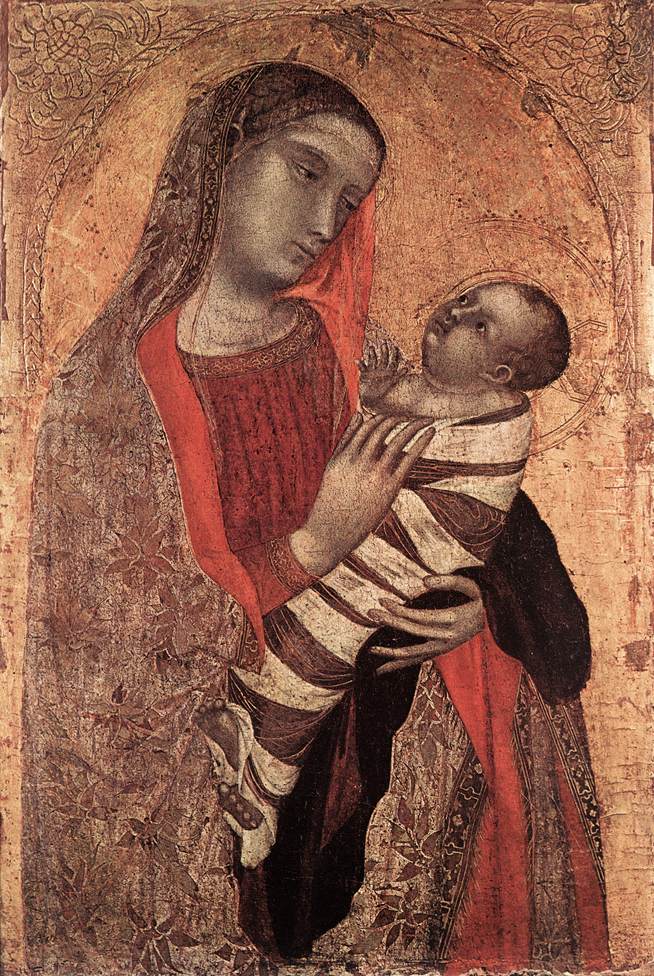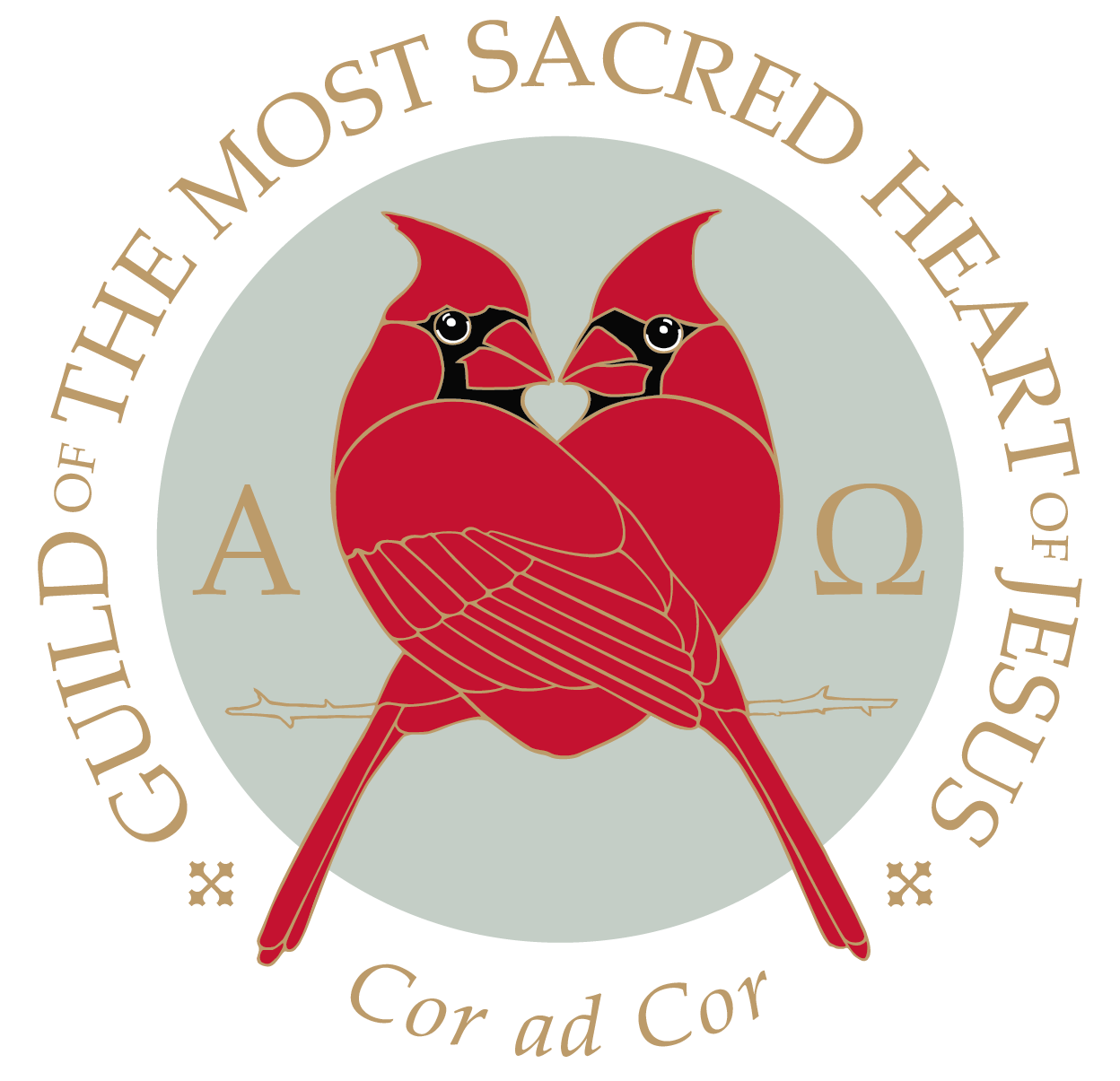
|
She brought forth her firstborn Son
and swaddled Him
and laid Him in a manger
because there was no room for them in the inn.
How familiar this verse is: the swaddling clothes, the manger (or as the Bishops decided to translate it in 1965, a crib– both words refer first to a trough); because there was no room for them in the inn. It all sounds so very familiar; perhaps too familiar.
Where the author is from (the South West of the British Isles) farming folk traditionally lived in a dwelling called a longhouse, known as a byre in Ireland and a longère in Brittany. The essential feature of a longhouse is that people and animals shelter under one roof; they are built on a slight slope, so that the animals become a heating source for the people, who live on a higher level. The ground slopes away, which also has the benefit that the inevitable animal slurry doesn’t invade the people’s space, but instead drains away from the house. That is the science of the longhouse: it is all very logical.
If you ever wondered what the inn at Bethlehem might be like, perhaps a rustic wayside retreat comes to mind – somewhere you might be able to pull up by the fireplace after a long journey. And indeed, many of you will have been involved, in your childhood, in Nativity plays. Perhaps you had to make the costume for one of your children playing an innkeeper (the writer’s mother had to make such a costume, playing the key figure of the seal in the Nativity – did you not know there were seals in Bethlehem? It’s quite a heave from the coast at Caesarea).
But there is a problem with this whole image. A substantial problem: there probably was no such ‘inn’ in Bethlehem, or if there was, Our Lord was likely not born there. A hostelry for traveling strangers is not what the Gospel writer is referring to. He uses a very particular word to describe the place in which Our Lady is delivered of her firstborn Son. He uses the Greek word ‘katályma’. This word can be translated as ‘inn’, it is true; but it can also be translated as guestroom, lodging quarters, or, indeed…upper room. And therein lies the key.
The word katályma appears only three times in the Bible; twice in Luke’s Gospel, and once in Mark’s Gospel. The first appearance in Luke is this one; Lk 2:7, describing the Holy Family’s seeking shelter in Bethlehem. The only other appearance is Lk 22:12, which is comparable with Mk 14:14. In both places, this word katályma is used in the context of a very particular event. That event is the preparation for the Last Supper. The katályma referred to by both Luke and in Mark, is not an inn, nor a stable, but instead, the very Cenacle itself: the Upper Room. The use of the same word is quite deliberate, particularly because in both Mark and Luke, the word is spoken by Our Lord directly, to describe the kind of place He desired to eat the Passover with His disciples. So out with the innkeeper – and out with the seals, too – we have a very different picture emerging from a careful study of the Scripture.
To make the point more strongly, consider this: if you have any friends of Middle Eastern origins, you will know one thing is for certain: hospitality is very important in their culture. One could say the home is at the heart of Middle Eastern society. In the events of this Holy Night, St. Joseph is visiting his hometown, not for a social visit, but on the orders of the Emperor in far away Rome. He goes there because he is a descendant of King David. Nonetheless, how odd it would be for him to stay in a stranger’s inn, and not, after all, with his family. In fact, it would be a source of great shame for a family member to stay anywhere other than home.
So far, we can see a very different picture from the Christmas card image beginning to emerge. Instead, we have the very real hint of personal rejection – one perhaps echoed in the Prologue of John’s Gospel: He came to His own and His own did not receive Him (Jn 1:11). There is no place for Joseph and Mary and the Christ-child amongst their own – perhaps the saddest thought ever conceived. Note very carefully the use of the word, ‘place’ (topos in Greek) more frequently translated as ‘room’. Our Lord comes into a world in which He is rejected, by his own, before he is even born. There is no place for them within the family. It makes it a very different story from there being no room at the inn.
But what of the shepherds keeping watch of their flock? The ones who hurried to the manger at night. Essential characters for the Nativity play, but what of them? When we think of them, the cynical amongst us might say, “Why is it that they are watching their flocks by night in the middle of winter? Aha! We see an error in the Sacred Scriptures! It must have been the summertime, because otherwise, the sheep would not have been out grazing. Therefore, the Bible is wrong; therefore, we cannot trust the account, et cetera…”
Whilst it is certainly true that shepherds would not be pasturing their flocks in the winter in northern climes; in Bethlehem, the situation is different. The climate in the Judean hill country is more temperate and fluctuates rapidly. Unlike here in Connecticut, the grass may grow all year round – especially after rains. In the winter therefore, Bethlehem shepherds would constantly have to assess whether to take their flocks to feed on fresh grass, or to feed them with fodder. Moreover, the Awassi, local to that area even today, is a breed that comes into season all year round. For all of these reasons, when the weather is colder is precisely the time the shepherds are likely to be nearer to the cities – not far away in the wilderness of the mountains. In the summertime, they would be far too far away to hurry to the manger bed. Thus, the fact that the angels appeared and the shepherds immediately get up and go to the manger bed that night, proves the opposite from what our cynic first thought. It proves precisely that it was winter.
Let us consider finally the swaddling clothes: they are not simply a comfy outfit for a newborn against the chill. When a mother swaddles her babies, she wraps them up so tightly that they cannot move to protect them from harm. But an unmistakable detail is revealed: newborn babes are bound with cloth in exactly the same way as corpses for burial. In Biblical typography, the swaddling clothes and the winding sheet are, essentially, one and the same. This was the child born to die.
Tonight, we recall how Our Lord’s Sacred Body was lovingly prepared to be laid in a manger; just as, thirty-three years later, He would be lovingly prepared to be laid in a tomb. The link with that perfect Sacrifice is even clearer when we realize that the swaddling of the infant Christ, is the same action used to prepare lambs for sacrifice in the Temple. They too, are swaddled before they are offered: their limbs are bound to prevent movement and injury, that they may be unblemished (cf. Ex 12:15). Our Lady symbolically prepares our own unblemished Lamb of Sacrifice, the very Lamb of God, and lays that Lamb, her Son, white as a Host, in a feeding trough…to be our food.
Suddenly we see the Babe of Bethlehem (that ‘House of Bread’) has a destiny as the purest Victim offered in atonement for the sins of the world. A destiny He freely takes up, as he writhes against the swathing bands of our sin. His anguish in the manger is the first Eli Eli, lama sabachtani…He who is begotten not made, experiences our limitedness for the first time, in that desolate lodging place against the cold night air.
PRAY
